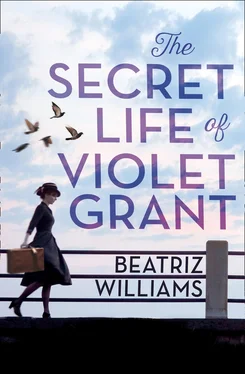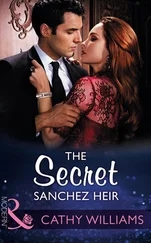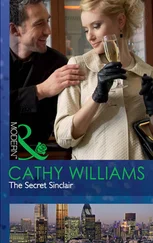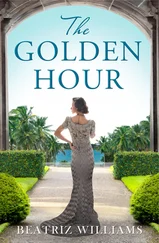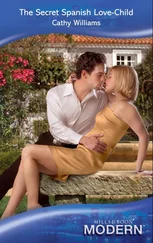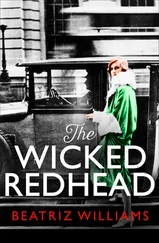1 ...8 9 10 12 13 14 ...22 “Even for a daughter of the Schuylers. She must have been irresistible. A shame there’s no photograph.”
“I suppose it’s a good thing they didn’t have the bright idea to sail home to New York and meet her parents afterward,” I said.
He looked at me quizzically.
“The Titanic .”
“Oh, right.” He turned back to the frail yellow page before us and frowned. “It’s awfully concise, isn’t it?”
I followed him. The statement was a short one, a compact jewel box of status markers, conveying only and precisely what readers of the Times needed to know about the happy bride and groom to place them in the only world that counted.
Miss Violet Schuyler weds Dr. Walter Grant. Miss Violet Schuyler, daughter of Mr. and Mrs. Charles Schuyler of Fifth Avenue, New York City, and Oyster Bay, Long Island, was married last Monday to Dr. Walter Grant of Oxford, England, at the Oxford town hall. A short reception followed the ceremony. The couple will reside in Oxford, where Dr. Grant is chairman of the Devonshire Institute for Physical Chemistry.
“You’re right. There should be a photo,” I said. “My aunt Julie said she was very pretty. A genuine redhead.”
“Funny, the announcement says nothing about Violet’s being a scientist, too.”
“Well, it wouldn’t, would it? The horror.”
Doctor Paul straightened from the table. “We have a name now, anyway. Violet Grant, Dr. Walter Grant. The encyclopedia should have a listing, shouldn’t it?”
We tackled the E.B. shoulder-to-shoulder, oxen in yoke. Did I mention I was enjoying myself immensely? Working with Doctor Paul gave me the most exhilarating sense of equality, the thrill of collaborative discovery. Exactly the way I had pictured my job at the magazine, before I actually entered the office two weeks ago and knocked on my editor’s door for that first journalistic assignment. Just imagine me, fresh of face, shiny of pelt, poised of pencil, doing my best Rosalind Russell before the legendary desk of my legendary editor.
Me (humbly): What’ll it be, Mr. Tibbs? Murder trial? Corruption investigation? Fashion shoot?
Tibby (cheerfully): No cream, extra sugar, and make it hot.
But this. Doctor Paul’s older and wiser fingers flipping through the wispy new pages of the latest Encyclopaedia Britannica , his voice muttering Gramophone, Graves, too far, here it is, Grant. All on my behalf. All as if I belonged by his side, reading the one-column entry for Dr. Walter Grant in tandem with his own adept brain.
Then, the coup de be-still-my-beating-heart. Doctor Paul turned, knit his devastating brows to an inquisitive point, and said the magic words: “What do you think, Vivian?”
I think we should marry and breed.
“I think it was a shame she killed him.”
GRANT, Walter, Ph.D. (1862–1914)Physical chemist, an earlier colleague of Ernest Rutherford before a professional dispute caused a rift between the two, chair of the Devonshire Institute for Physical Chemistry (Oxford), and finally a fellow at the Kaiser Wilhelm Institut für Physikalische Chemie und Elektrochemie in Berlin, Germany, in the years before his death. His early experimentation in the discovery of the atomic nucleus paved the way for numerous advances, though by the time of his death in July 1914, his theories had reached a dead end and he had failed to produce any major original research in several years.
Born on August 7, 1862, the only surviving child of a Manchester solicitor and the daughter of a music teacher, Grant attended first Uppingham School in Rutland, where he excelled in mathematics and Greek and won a scholarship to King’s College, Cambridge.
The circumstances of his death have never been established conclusively, due in part to the state of civic confusion as Germany hovered on the brink of the First World War. According to press reports, his body was found in his flat in Kronenstrasse with a single gunshot wound to the chest in the early morning hours of July 26, 1914. Police attempted to apprehend his wife, Violet Grant, but she escaped Berlin with a man widely rumored to have been her lover, and was not seen again. No other suspect was subsequently apprehended, and the case remained open.
“Look how handsome he is.” I tapped the tiny gray photograph of a bearded Dr. Walter Grant, right between his smug scientific eyeballs. “A crying shame.”
“If she killed him,” said Doctor Paul. “The case remains open, it says.”
“Who else would have done it?”
“The lover, for one.”
A shadow fell over the life, work, and beard of GRANT, Walter, Ph.D.An exasperated shadow, judging by the acute angle of the elbows as hands met hips.
“That was your last warning,” the shadow whispered bitterly. “I must ask you to leave.”
“I WONDER who he was, this lover of Violet’s,” I said. “The encyclopedia didn’t even give his name.”
Doctor Paul stretched out his long legs and fingered the rim of his cup. We were sitting in a booth at an overheated coffee shop on Forty-second Street, a hat toss from Grand Central Terminal, and I, watching the good doctor’s lugubrious hand circle its way into infinity, found myself in the absurd position of envying a hunk of white ceramic. “Some good-looking young fellow, I guess. Closer to her own age. She’d probably examined her future, decades of marriage to a man old enough to be her father, and realized it wasn’t worth it.”
“What wasn’t worth it?”
“Whatever she got from it. Money or security.” He shrugged and pulled a packet of cigarettes from his jacket pocket. “Do you mind?”
“Oh, thank God.” I snatched a cigarette from the pack. “I was hoping you’d ask.”
He laughed and lit me up like a gentleman. I might have lingered overmuch near his outstretched fist, though he didn’t seem to mind. “I’ve told myself I’ll quit when this damned residency is over with,” he said, pulling out one for himself.
“I’ve told myself I’ll quit when I’m good and ready.” I took a sweet long drag, just to drive home my point, and drank my coffee in a reckless gulp. And why not? I couldn’t fault the coffee, hot hot hot; the same went for Doctor Paul’s cigarettes, Winstons, luxurious and masculine. Coffee and tobacco, that fusion of divine creation. I’d ordered a raisin bun some time ago and presumed the kitchen was now sending out to Madagascar for more cinnamon. I didn’t care. “I don’t think she wanted money from him. She wasn’t the type. If she wanted to marry for money, she’d have stayed in New York and done a much better day’s work of it.”
“Fair enough. Security? She was alone in England. She’d left her family behind.”
“Possibly. Or maybe she was in love with him.”
“Really?” His voice was so saturated with doubt, I could have stretched out my two hands, wrung it from the air, and mopped it back up with a napkin.
“Really. It’s a known phenomenon, after all. A rite of passage. Falling in love with your professor.”
“Are you serious? An old man like that?”
“You’re sure you want to hear this, golden boy?”
Just before he answered, he checked himself. His blue eyes did that thing again, that darkening, as if the weight of realization brought about some chemical change in him. He picked through his words more carefully and said: “Is this about Violet, or about you?”
Well, now.
I am not a girl who evades a man’s gaze without good reason, but I dropped mine then, right through the gentle haze of smoke drifting from my fingers and into the hot black pool of coffee, kerplop .
Here we were already, the moment of truth. It usually took a lot longer to arrive, didn’t it? Several dates at a minimum. Sometimes never, if the chemistry wasn’t bubbling enough to make the effort worthwhile. You circled around it as long as you could, until there was no putting it off, until the suitcases had to be dragged out from under the bed and opened, the contents examined. Had you slept with anyone? When? Why? How many? The answers could be elliptical or coded— we were engaged , that was a favorite—and the details left to the imagination, but you had to have your answer ready. Some boys wanted to know you were lily-white; some just wanted to know you weren’t a livid scarlet. You needed to know whether he cared about your particular shade of pink, and what that meant, and whether you cared if he cared. You might even be curious about him—Yes? How many? What kind of girls?—and then it was time for the fork in the road, and whether the two of you would take it. It was a funny time, 1964. An in-betweener, a swirling slack tide.
Читать дальше
